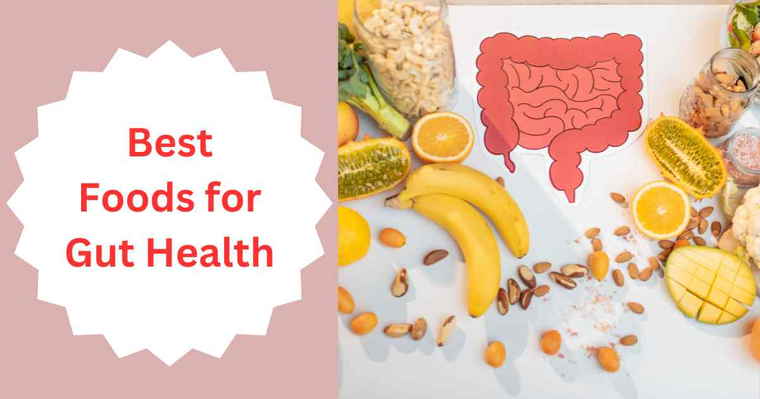Maintaining a healthy gut is about more than just good digestion—it impacts your immunity, mood, weight, and overall well-being. One of the most powerful ways to support your gut is through diet. Choosing the right foods for gut health can promote a diverse and balanced microbiome, reduce inflammation, and improve nutrient absorption. In this article, we’ll explore the top foods for gut health, why they matter, and how to include them in your daily meals.
Why Gut Health Matters
Your gut is home to trillions of microorganisms, often called the gut microbiome. These beneficial bacteria:
- Help break down food and absorb nutrients.
- Support the immune system.
- Influence brain health through the gut-brain connection.
- Protect against harmful pathogens.
When your gut microbiome is balanced, you feel healthier, more energized, and less prone to digestive issues. Eating the right foods is the simplest way to keep it thriving. By the way, here is our article about best exercises for gut health.
Top Foods for Gut Health
1. Fermented Foods
Fermented foods are rich in probiotics—live bacteria that boost gut flora.
- Examples: Yogurt, kefir, sauerkraut, kimchi, miso, kombucha.
- Why it helps: They introduce beneficial bacteria that restore balance in the gut.
- Tip: Choose unsweetened varieties for maximum benefit.
2. High-Fiber Vegetables
Fiber acts as food for your gut bacteria, helping them grow and flourish.
- Examples: Broccoli, spinach, kale, carrots, asparagus, and artichokes.
- Why it helps: Fiber feeds the good bacteria, producing short-chain fatty acids that support gut lining.
- Tip: Aim for a variety of colors on your plate for diverse nutrients.
3. Legumes and Beans
Legumes are excellent prebiotics, which fuel probiotic bacteria.
- Examples: Lentils, chickpeas, black beans, kidney beans.
- Why it helps: Rich in fiber and plant protein, they support digestion and long-term gut health.
4. Whole Grains
Whole grains contain resistant starch and fiber, both essential for gut microbes.
- Examples: Oats, quinoa, brown rice, barley, whole wheat.
- Why it helps: Improves bowel movement regularity and feeds beneficial bacteria.
5. Fruits Rich in Fiber and Antioxidants
Fruits offer both soluble fiber and antioxidants, reducing gut inflammation.
- Examples: Apples, bananas, berries, pears, kiwis.
- Why it helps: Bananas contain inulin, a natural prebiotic, while berries are loaded with polyphenols that strengthen the microbiome.
6. Nuts and Seeds
Nuts and seeds provide healthy fats, protein, and fiber for optimal digestion.
- Examples: Almonds, walnuts, chia seeds, flaxseeds.
- Why it helps: They act as prebiotics and help reduce gut inflammation.
7. Lean Protein Sources
Lean protein supports gut tissue repair while maintaining overall health.
- Examples: Fish, skinless poultry, tofu, tempeh.
- Why it helps: Easily digestible protein reduces strain on the digestive system.
Foods to Limit for Better Gut Health
While adding foods for gut health is important, it’s equally vital to reduce foods that harm the microbiome:
- Processed foods high in sugar and unhealthy fats.
- Artificial sweeteners, which may disrupt gut bacteria.
- Excessive alcohol, which can damage gut lining.
Simple Tips to Include Gut-Friendly Foods Daily
- Start your morning with yogurt topped with berries and flaxseeds.
- Add fermented side dishes like kimchi or sauerkraut to meals.
- Snack on a handful of nuts or a banana.
- Choose whole grains over refined carbs.
- Drink plenty of water to support digestion.
Final Thoughts
Your gut is the foundation of your overall health, and nurturing it with the right diet makes all the difference. By including a variety of foods for gut health—fermented foods, fiber-rich fruits and veggies, whole grains, legumes, nuts, and lean proteins—you can strengthen your microbiome, boost immunity, and feel your best every day.

